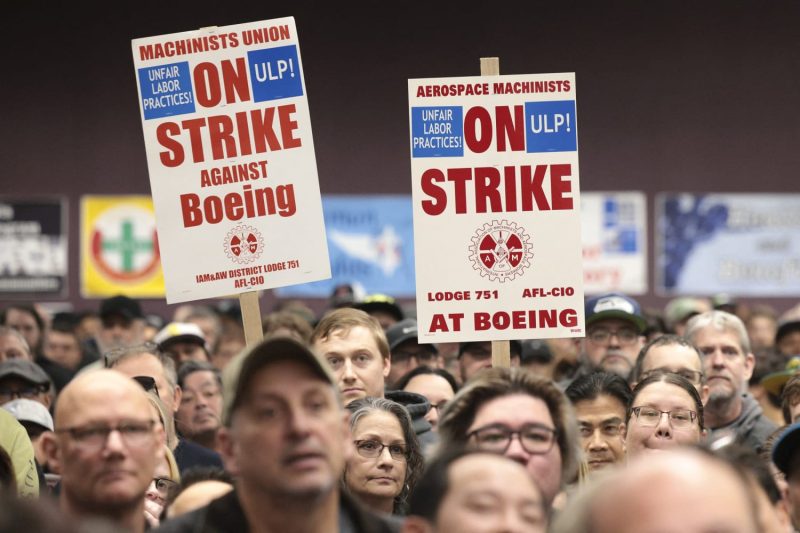
Boeing Machinists’ Bold Move: Rejecting Labor Contract, Prolonging Strike
Boeing Machinists Reject New Labor Contract, Extending Strike
In a surprising turn of events, Boeing machinists recently voted to reject a new labor contract proposed by the company, further extending the strike that has already impacted production and delivery schedules. The decision comes after weeks of negotiations between Boeing and the International Association of Machinists and Aerospace Workers (IAM) failed to reach a consensus on key issues.
One of the main sticking points in the negotiations was the company’s proposal to increase employee healthcare costs, a move that was met with strong opposition from the machinists union. The union argued that such a proposal would place an undue burden on its members, many of whom are already facing financial challenges due to the economic impact of the COVID-19 pandemic.
Moreover, there were concerns about job security and future work opportunities for the machinists, as Boeing has been exploring plans to shift some of its production facilities to other locations. The union feared that accepting the proposed contract would weaken their bargaining position and could potentially lead to job losses in the long run.
The rejection of the contract reflects the machinists’ determination to stand up for their rights and ensure that their voices are heard in the negotiation process. It also underscores the importance of unity and solidarity among workers in the face of corporate pressure to accept unfavorable terms.
As the strike continues, both Boeing and the IAM will need to reassess their positions and find common ground to reach a mutually acceptable agreement. In the meantime, the extended strike is likely to have ripple effects on Boeing’s operations, supply chain, and overall business performance.
This development serves as a reminder of the challenges faced by workers in the aerospace industry and the importance of maintaining strong labor protections and fair working conditions. It also highlights the need for effective communication and collaboration between companies and labor unions to avoid prolonged conflicts that can harm both parties in the long term. Only through transparent and constructive dialogue can sustainable solutions be reached that benefit all stakeholders involved.
